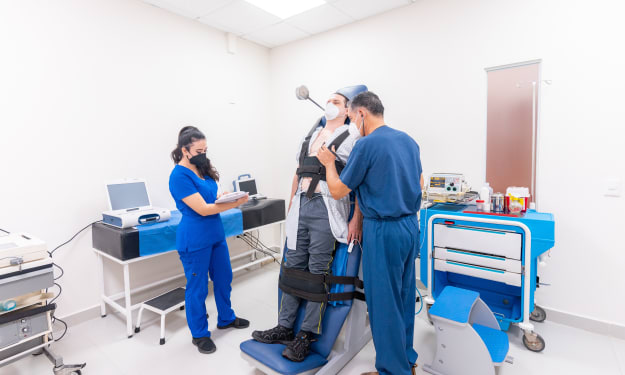What are the Common Reasons for Sudden Decreases in Website Traffic?
Decreases in Website Traffic

Introduction
For website owners and digital marketers, witnessing a sudden drop in website traffic can be both concerning and puzzling. A decline in traffic not only affects your online visibility but can also lead to reduced conversions and revenue. As a comprehensive SEO company, we understand the importance of identifying the root causes of such drops. In this article, we explore the common reasons behind sudden decreases in website traffic and offer insights to help you address and overcome these challenges.
1. Algorithm Updates
Search engine algorithms are continually evolving to provide users with the most relevant and high-quality results. When search engines update their algorithms, websites that were previously ranking well may experience a sudden decline in traffic. Staying informed about algorithm changes and adjusting your SEO strategies accordingly is essential to mitigate the impact of such updates.
2. Technical Issues
Technical issues on your website, such as broken links, server errors, or slow loading times, can significantly impact user experience and search engine rankings. These issues may prevent search engine bots from properly crawling and indexing your site, leading to reduced organic traffic.
3. Manual Penalties
If your website violates search engine guidelines or engages in black-hat SEO practices, it may be subject to a manual penalty. These penalties are imposed by search engine reviewers and can cause a sudden and substantial drop in traffic. Conduct regular audits to ensure compliance with search engine guidelines and promptly address any issues.
4. Competitor Actions
In a competitive digital landscape, your competitors may be actively working on their SEO strategies to improve their rankings. As they gain ground, your website may experience a decline in traffic. Monitoring your competitors' activities and constantly refining your own SEO efforts can help you stay ahead.
5. Seasonal or Cyclical Trends
Certain industries or topics experience seasonal fluctuations in search volume and user interest. If your website is subject to these trends, it's natural to see periodic variations in traffic. Understanding these patterns can help you prepare for seasonal lows and leverage seasonal highs.
6. Content Quality and Relevance
Search engines prioritize websites that offer valuable, relevant, and up-to-date content. If your website's content is outdated, low-quality, or not aligned with users' search intent, it may result in reduced traffic. Regularly update and optimize your content to maintain its relevance and appeal.
7. Website Redesign or Migration
A website redesign or migration can lead to temporary disruptions in traffic if not executed correctly. Ensure that proper redirects are in place, and technical SEO aspects are considered during the process to minimize the impact on traffic.
8. External Events and Trends
External events, such as changes in consumer behavior, global crises, or economic shifts, can influence user search patterns and impact website traffic. Monitoring these events and adjusting your SEO and content strategies accordingly can help mitigate their effects.
9. Changes in social media or Referral Traffic
Social media algorithms or referral sources can change, affecting the amount of traffic your website receives from these channels. Diversify your traffic sources to reduce dependency on a single platform.
10. Mobile Responsiveness
With the majority of users accessing websites on mobile devices, a lack of mobile responsiveness can lead to higher bounce rates and reduced traffic from mobile users.
Frequently Answers Questions
1. Why did my website experience a sudden drop in traffic?
Sudden drops in website traffic can occur due to various reasons, including algorithm updates, technical issues, penalties, competitor actions, seasonal trends, content relevance, website redesign, and changes in referral or social media traffic.
2. How can I determine the specific cause of the traffic decline on my website?
Identifying the specific cause of a traffic drop requires a comprehensive analysis. Conduct a thorough website audit, check for technical issues, review recent algorithm updates, monitor competitor activities, and analyze content quality and relevance to pinpoint the root cause.
3. Can an SEO company help me recover from sudden traffic decreases?
Yes, a reputable SEO company can assist you in identifying and addressing the issues that led to the traffic decline. They can develop a tailored strategy to optimize your website, improve its rankings, and regain lost traffic.
4. What are manual penalties, and how can I avoid them?
Manual penalties are imposed by search engine reviewers for violating their guidelines or engaging in unethical SEO practices. To avoid such penalties, adhere to search engine guidelines, focus on quality content and legitimate link-building practices, and steer clear of black-hat SEO tactics.
5. How long does it take to recover from a sudden traffic drop?
The time to recover from a traffic drop can vary depending on the specific cause, the extent of the issue, and the effectiveness of your recovery efforts. In some cases, it may take weeks or months to see significant improvements.
6. Can seasonal fluctuations affect website traffic significantly?
Yes, certain industries or topics experience seasonal or cyclical trends that can lead to fluctuations in search volume and user interest. Understanding these patterns can help you prepare for seasonal variations in traffic.
7. Should I be concerned about changes in social media or referral traffic?
Changes in social media algorithms or referral sources can impact your website's traffic. It's essential to diversify your traffic sources to reduce dependency on a single platform.
8. Can a website redesign negatively impact traffic?
Yes, a website redesign or migration can lead to temporary disruptions in traffic if not executed properly. Proper redirects, technical considerations, and post-launch monitoring are crucial to minimize the impact on traffic.
9. How important is mobile responsiveness for maintaining website traffic?
Mobile responsiveness is crucial as an increasing number of users access websites on mobile devices. A lack of mobile responsiveness can lead to higher bounce rates and reduced traffic from mobile users.
10. Is it normal for website traffic to fluctuate regularly?
Yes, website traffic can fluctuate regularly due to various factors, including user behavior, industry trends, and search engine algorithm changes. It's essential to monitor trends and be prepared for periodic variations in traffic.
Conclusion
Sudden decreases in website traffic can be alarming, but understanding the common reasons behind such drops can help you take proactive measures to recover and improve your website's performance. As a professional SEO company, we emphasize the importance of continuous monitoring, regular audits, and adaptive SEO strategies to maintain stable and sustainable traffic levels for your website. Stay vigilant, adapt to changes, and leverage the expertise of a comprehensive SEO company to navigate through fluctuations and achieve long-term online success.





Comments
There are no comments for this story
Be the first to respond and start the conversation.